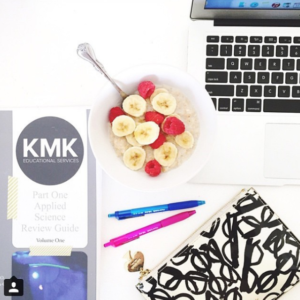Exams, boards, practicals, quizzes, assignments, and clinic are stresses that we all deal with in optometry school. How do you exactly take control over your stress?
First things first, learn your personal signs of stress which can include stress eating (over eating or under eating), grinding your teeth, clenching your jaw, random changes in mood, becoming ill, and skipping classes. Once you know your own signs, you will be able to react quickly to your stress and attack it early on. The second thing to do once you realize you’re stressed is to manage it. So how do you do that?
 Naps – As students, we do not get nearly the amount of sleep we should and that can affect our everyday functions, not to mention our ability to retain information. Naps are a good way to get extra bits of sleep and help you to take a mental “time out.” To find more information about naps check out the National Sleep Foundation, which recommends 20-30 minute short naps for short term alertness.
Naps – As students, we do not get nearly the amount of sleep we should and that can affect our everyday functions, not to mention our ability to retain information. Naps are a good way to get extra bits of sleep and help you to take a mental “time out.” To find more information about naps check out the National Sleep Foundation, which recommends 20-30 minute short naps for short term alertness.
Yoga and/or meditation – Yoga provides both exercise and meditation which can be scheduled into your planner, while meditation can be practiced anywhere and anytime. Both provide you with deep breathing and relaxation techniques to help reduce and eliminate your stresses. Headspace and Smiling Mind are some amazing FREE apps that help to guide you during meditations.
Exercise – Some people lift weights to take a break from school while others go on runs to help clear their minds. Exercising has many benefits – it is overall healthy for our body, increases our immune system, and releases our happy drugs (dopamine, serotonin, and noradrenaline). Even if you take 15 minutes out of your day to exercise, it can help decrease stress and depression and improve your focus. For those of you who do not have time for exercise, you can even bring your notes with you while you use stationary machines as the ellipticals.
 Eating properly – Buying and making food can be stressful, but the nutrients that you get from eating healthy will help to reduce your stress and provide energy for your brain. Some tips to eating healthy is to buy groceries after you have eaten, preferably at the beginning of the week and before the evening rush allowing you to get fresh food. Buy your frozen food for a month and buy your vegetables and fruits every week. Even going grocery shopping can be a stress reliever if you enjoy it! Take time over the weekend to meal prep for the week, so that you are not stressing the night before or the morning of classes thinking of what you need to pack.
Eating properly – Buying and making food can be stressful, but the nutrients that you get from eating healthy will help to reduce your stress and provide energy for your brain. Some tips to eating healthy is to buy groceries after you have eaten, preferably at the beginning of the week and before the evening rush allowing you to get fresh food. Buy your frozen food for a month and buy your vegetables and fruits every week. Even going grocery shopping can be a stress reliever if you enjoy it! Take time over the weekend to meal prep for the week, so that you are not stressing the night before or the morning of classes thinking of what you need to pack.
Write it out – Everyone has that moment when we need to vent and writing out your thoughts often works as well as saying them out loud. Writing it out also allows you to keep a log of what has been bothering you so you can track if something is a recurring issue and find a way to deal with the problem.
Surround yourself with the positive – Being with classmates all day is fun but sometimes you just hear the same complaints and nobody has time for that negativity. Try to find positive people around you. Sometimes turning to your loved ones and asking for support is all you need.
Other tips and tricks from other students:
- study earlier for exams
- active learning in class
- scents – candles/oils
- wind down with a glass of alcohol
- videogames
- go to the beach/mountains/etc.
- take breaks
- reward yourself for a job well done
- spending time with your significant other
If you find yourself reading this article and thinking “I don’t have time for any of these things,” then you might need to take a look at your time management. If you take anything away from this article, let it be that there are many ways to relieve stress but the main goal is to take time for you.
Spread some of your own wisdom below on how YOU deal with stress!

